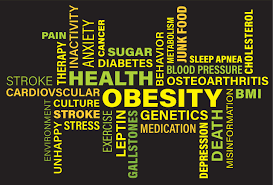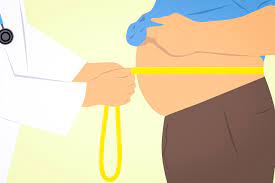Effective Ways for Weight Reduction
Introduction
Weight reduction has become a crucial aspect of maintaining a healthy lifestyle. Excessive weight can cause several health problems such as diabetes, high blood pressure, heart disease, and even cancer. Weight reduction is a challenging task that requires a lot of effort, time, and consistency. It is essential to adopt a healthy lifestyle to reduce weight effectively. In this article, we will discuss some effective ways to reduce weight and lead a healthy life.

Understanding Weight Reduction
Weight reduction is a process that involves burning more calories than you consume. It may seem like a daunting task, but with the right approach, it can be achieved effectively. The key to weight reduction is to create a calorie deficit by either reducing calorie intake or increasing physical activity.
It is essential to understand that weight reduction is a gradual process, and you should not expect immediate results. A healthy and sustainable weight loss goal is to aim for a calorie deficit of 500 to 1000 calories per day, which can result in losing 1 to 2 pounds per week.
One way to track your progress is by monitoring your body weight regularly. However, it is important to keep in mind that weight fluctuates throughout the day and can be affected by several factors such as hydration, food intake, and exercise. It is best to weigh yourself at the same time every day, preferably in the morning, before eating or drinking anything.

In addition to monitoring your weight, it is important to pay attention to how you feel. Weight reduction should not make you feel hungry, fatigued, or deprived. It is crucial to adopt a healthy and balanced approach to weight reduction that includes a nutritious diet and regular physical activity.
By understanding the basic principles of weight reduction and setting realistic goals, you can achieve your desired weight and lead a healthier lifestyle. Remember that weight reduction is not a one-size-fits-all approach, and it may require some trial and error to find what works best for you. With patience, consistency, and a positive mindset, you can successfully reduce your weight and improve your overall well-being.
Exercise for Weight Reduction
Exercise is an essential component of weight reduction. It not only burns calories but also helps to build muscle mass, which can increase your metabolism and aid in weight loss. There are various types of exercise that can be incorporated into your weight reduction routine, including cardio and strength training.
Cardiovascular exercise, also known as cardio, is any form of exercise that increases your heart rate and breathing rate. Examples of cardio exercises include walking, jogging, cycling, swimming, and dancing. Cardio is an effective way to burn calories and improve your cardiovascular health. Aim for at least 30 minutes of moderate-intensity cardio exercise per day, five days a week.
Strength training, also known as resistance training, involves using weights or resistance bands to strengthen your muscles. Strength training helps to increase muscle mass, which can boost your metabolism and help you burn more calories throughout the day. Examples of strength training exercises include squats, lunges, push-ups, and bicep curls. Aim for at least two strength training sessions per week, targeting all major muscle groups.

In addition to cardio and strength training, it is essential to incorporate physical activity into your daily routine. This can include taking the stairs instead of the elevator, parking further away from your destination, or going for a walk during your lunch break.
It is important to listen to your body and start slowly if you are new to exercise. Gradually increase the duration and intensity of your workouts as you become more comfortable. Always warm up before exercising and cool down afterward to prevent injury.

Remember that exercise is just one part of a healthy weight reduction routine. It is crucial to also pay attention to your diet and overall lifestyle habits. By incorporating regular physical activity into your daily routine and adopting a balanced and nutritious diet, you can successfully achieve your weight reduction goals and improve your overall health and well-being.

Diet Plan for Weight Reduction
When it comes to weight reduction, a balanced and nutritious diet is crucial. It is important to consume fewer calories than you burn to create a calorie deficit and promote weight loss. However, it is equally important to make sure that you are consuming enough nutrients to support your overall health and well-being.
Here are some tips for creating a healthy diet plan for weight reduction:
Focus on whole, unprocessed foods: Choose whole foods such as fruits, vegetables, lean proteins, and whole grains. These foods are rich in nutrients and can help keep you feeling full and satisfied.

Monitor your portions: Pay attention to portion sizes and use measuring cups or a food scale to ensure that you are not overeating.
Limit your intake of refined carbohydrates: Foods such as white bread, pasta, and sugary drinks can cause blood sugar spikes and cravings, making it harder to stick to a healthy diet.
Choose healthy fats: Incorporate healthy fats such as olive oil, nuts, and avocado into your diet. These fats can help keep you feeling full and satisfied.

Stay hydrated: Drinking enough water can help curb hunger and prevent overeating. Aim for at least eight glasses of water per day.
Plan your meals and snacks: Planning ahead can help you stay on track with your healthy eating goals. Make a grocery list and prepare healthy meals and snacks in advance.
Allow for treats in moderation: It is important to enjoy your favorite foods in moderation to avoid feeling deprived. Allow for treats in moderation and focus on overall balance and moderation in your diet.

Remember that a healthy diet plan is individualized and should be tailored to your specific needs and preferences. It is important to consult with a healthcare professional or registered dietitian before starting any new diet plan or making significant changes to your diet.
By incorporating whole, nutritious foods into your diet, monitoring your portions, and staying hydrated, you can successfully achieve your weight reduction goals and improve your overall health and well-being.
Lifestyle Changes for Weight Reduction
Making lifestyle changes is a crucial component of successful weight reduction. Here are some tips for incorporating healthy habits into your daily routine:

Get enough sleep: Lack of sleep can disrupt hormones that regulate hunger and appetite, making it harder to stick to a healthy diet. Aim for seven to eight hours of sleep per night.
Reduce stress: Stress can lead to overeating and unhealthy habits. Incorporate stress-reducing activities such as meditation, yoga, or spending time in nature.
Stay active throughout the day: In addition to structured exercise, find ways to stay active throughout the day, such as taking breaks to stretch or going for a walk after meals.
Limit screen time: Excessive screen time has been linked to weight gain. Try to limit your screen time and incorporate other activities into your day, such as reading or socializing with friends and family.
Stay accountable: Having a support system can help you stay on track with your weight reduction goals. Consider joining a support group or finding a workout buddy.
Cook more meals at home: Eating out can lead to consuming more calories and unhealthy ingredients. Cooking at home allows you to control the ingredients and portion sizes of your meals.
Practice mindful eating: Pay attention to your hunger and fullness cues and eat slowly to fully enjoy and savor your food.

Remember that lifestyle changes take time and effort. It is important to be patient and kind to yourself as you incorporate new habits into your daily routine. By making small, sustainable changes to your lifestyle, you can successfully achieve your weight reduction goals and improve your overall health and well-being.
FAQs about Weight Reduction
- What is the most effective way to lose weight?
The most effective way to lose weight is to create a calorie deficit by consuming fewer calories than you burn. This can be achieved through a combination of a healthy diet and regular exercise.
- How much weight can I expect to lose in a week?
The amount of weight you can expect to lose in a week depends on various factors, such as your starting weight, age, gender, and level of physical activity. In general, a safe and sustainable rate of weight loss is 1-2 pounds per week.
- Is it necessary to count calories to lose weight?
While it is not necessary to count calories, tracking your calorie intake can help you stay on track with your weight reduction goals. It can also help you identify areas where you may be consuming too many calories and make adjustments accordingly.
- Can I lose weight without exercising?
While regular exercise is beneficial for weight reduction, it is possible to lose weight without exercising by focusing on creating a calorie deficit through diet alone. However, incorporating exercise into your routine can provide additional health benefits and improve overall fitness.
- Can I eat my favorite foods while trying to lose weight?
Yes, it is possible to include your favorite foods in a healthy diet for weight reduction. However, it is important to practice moderation and portion control to avoid consuming too many calories.
- How do I prevent weight regain after losing weight?
To prevent weight regain, it is important to maintain a healthy lifestyle that includes a balanced diet and regular exercise. Focus on sustainable, long-term changes rather than quick fixes.
- Is it safe to take weight loss supplements?
The safety and effectiveness of weight loss supplements are not well-regulated, and some may even have harmful side effects. It is important to talk to a healthcare professional before taking any weight loss supplements.
Disclaimer:
The information provided in this article is for educational purposes only and is not intended to replace medical advice or treatment from a healthcare professional. Always consult with a healthcare professional before starting any new diet or exercise program, especially if you have a pre-existing medical condition or are taking any medications.
The author and publisher of this article are not responsible for any adverse effects or consequences resulting from the use of any of the suggestions, preparations, or procedures discussed in this article. The reader assumes full responsibility for their actions and decisions made based on the information contained in this article.
The results of weight reduction may vary from person to person, and there is no guarantee of weight loss or any specific health benefits from following the tips and suggestions provided in this article.
By reading and using the information in this article, you acknowledge that you have read this disclaimer and assume full responsibility for your actions and decisions.









